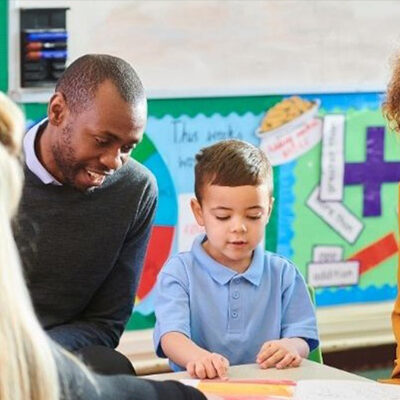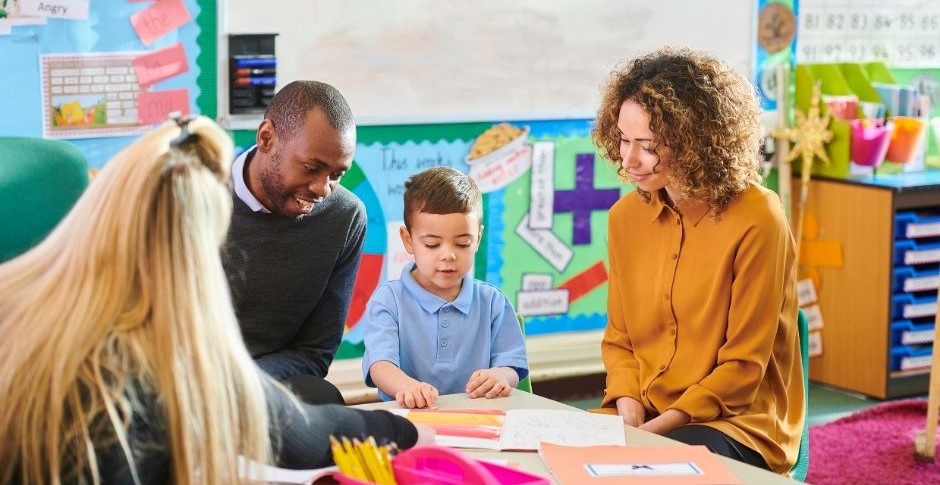
Developing Strong Parent/Teacher Partnerships
Many factors can help a child succeed at school. Effective teaching and parent support both aid children in learning. A cooperative alliance between parents and teachers ensures that children receive wrap-around support for their education. Parents and teachers must work to understand the unique perspective of the other. Both have an interest in the child succeeding.
Parents come with an intimate knowledge of their child’s strengths and areas that require assistance. Schools and teachers have the training, experience, and strategies for equipping children with knowledge and skills. The parent/teacher relationship plays an increasingly important role in helping children when they are struggling academically, socially, or emotionally.
Being alert to your child’s well-being and academic performance helps you intervene early in the development of difficulties. Schools regularly assess children’s progress. If your child begins struggling, communication between parents and teachers focuses everyone on the specific difficulties. Interventions may be suggested for getting your child back on track.
Parents must be open to ways that home life might be changed in order to help a child at school. For example, parents may need to develop routines in order to ensure their child arrives at school on time and prepared or establish a time and location for consistent completion of homework. Teachers can help by communicating proactively about concerns, being specific about how a student may be struggling, and implementing strategies to assist the child.
Parents may nurture a strong parent/teacher alliance with simple actions:
- Respond promptly to requests for information
- Be available for parent/teacher conferences
- Focus on the specific challenges your child is facing
- Learn about accommodations that may be available
- Have understanding of the pressures on teachers
- Ask questions to make sure you understand goals and interventions
- Be open to interventions the school can provide
- Monitor progress
- Follow up with updates, questions, and statements of appreciation
When communicating with teachers, be positive, recognize the efforts of the school, and ask how you can provide support. Avoid making claims based only on assumptions, your child’s reports, or reports from other parents. Seek information directly from teachers. By focusing on solutions and keeping lines of communication open, your child receives support for reaching potential from home and school.

